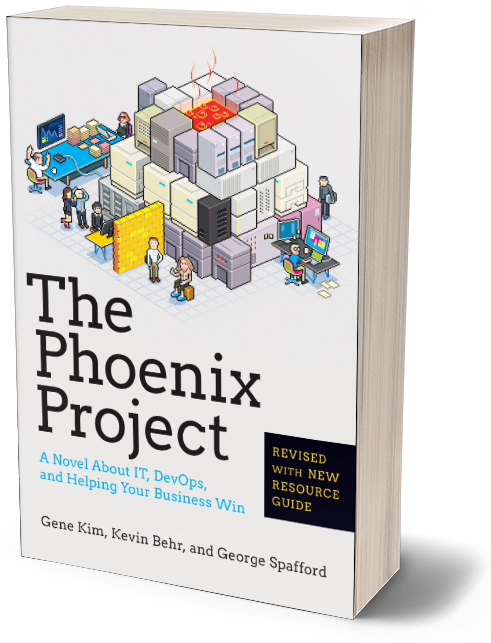“This game is an excellent starting point for all organisations with a desire to explore the do’s and don’ts of working in a DevOps way. It can also accelerate the adoption by all layers in the organisation, including the teams and senior leadership.“
Dave van Herpen
Former Sogeti
About DevOps
Even when already applying Lean and Agile techniques, we all know the typical IT behaviours and complaints about developers throwing seemingly untested solutions “over the wall” into production and leaving Operations to pick up the pieces. On the other hand, we hear Development complaining about the barriers put up by Operations that delay deployment, or workload demands placed on developers from IT Operations, such as small updates, fixing issues and applications not working. This is called a “wall-of-confusion”.

The increasing penetration of IT into all areas of the business and the desire for ever more and faster customer facing solutions, is stressing this challenge even more. As a result, the workload for Development and IT Operations is growing, workflows are stuck and IT initiatives are failing. Business executives are angry and frustrated, seeing risks to business operations and lost opportunities. To address these issues the DevOps movement started more than ten years ago, in 2009, with DevOpsDays in Ghent Belgium.
Gene Kim, Kevin Behr and George Spafford wrote an excellent novel “The Phoenix Project” about an organisation facing IT challenges and showed how to apply DevOps principles to achieve significant improvements while adding business value.
What is the Phoenix Project business simulation game?
DevOps is more than only improving technical practices. It is even more important to also improve your organisational culture and how you collaborate within and between the teams of your organisation.
Our Dutch partner GamingWorks created two business simulation games around this groundbreaking book to support your DevOps initiatives in this matter and to “learn by experience” instead of the old-school “learn by lecture”. Much more effective and in a shorter time frame, you experience the DevOps matters in a deeper way together as a team. No technical expertise or DevOps knowledge is needed.
Devoteam Belgium became Authorized Reseller and will soon be Certified Delivery Partner and offer the two Phoenix Project games.
The two options are:
- Phoenix Project for Business: a half-day game to support your DevOps awareness programs. It is targeted at Management roles, both from Business as IT, Process Managers, Team Leads and NON–IT employees. It is meant for teams of 5-8 participants.
- Phoenix Project: a more elaborated full-day game to kick-start your DevOps team’s development and is targeted at all roles and employees in Business, IT Development and IT Operations. It is for teams of 8-12 participants. The ideal is minimum 10 participants in order to use all available roles.
About the simulation
Parts Unlimited is in trouble. Newspaper reports reveal the poor financial performance of the organisation. The only way to save the company and to make it competitive and profitable is “The Phoenix Project”, which is an IT enabled business transformation, with Retail Operations as the business owner of this project.
The VP of IT Operations is asked to lead the IT Department and make sure “The Phoenix Project” is successful. However, he is facing a tremendous amount of work: huge backlogs of issues, features and projects.
Your team will take different roles within Parts Unlimited. You can be Retail Operations, Human Resources or the CFO and run your projects. You can play the role of the VP of IT Operations or lead one of the IT functions. You will be suggesting improvements, addressing issues, developing applications, managing operations or discuss with other members of your IT Team who need help to develop applications and solve IT issues.
Your challenge is to use the DevOps principles and apply them in this Business Simulation.
In four rounds you will work on the IT projects and issues, and make sure “The Phoenix Project” is finished on time. But beware, the business keeps coming up with new ideas and demands, and external developments outside your control can also throw a spanner in the works.
After every round, we will reflect on what happened. What went well? What needs improving? Exploring what this has to do with the DevOps theory and how we can improve our work using DevOps principles. The team will have time to implement the learning outcomes in the next round.
